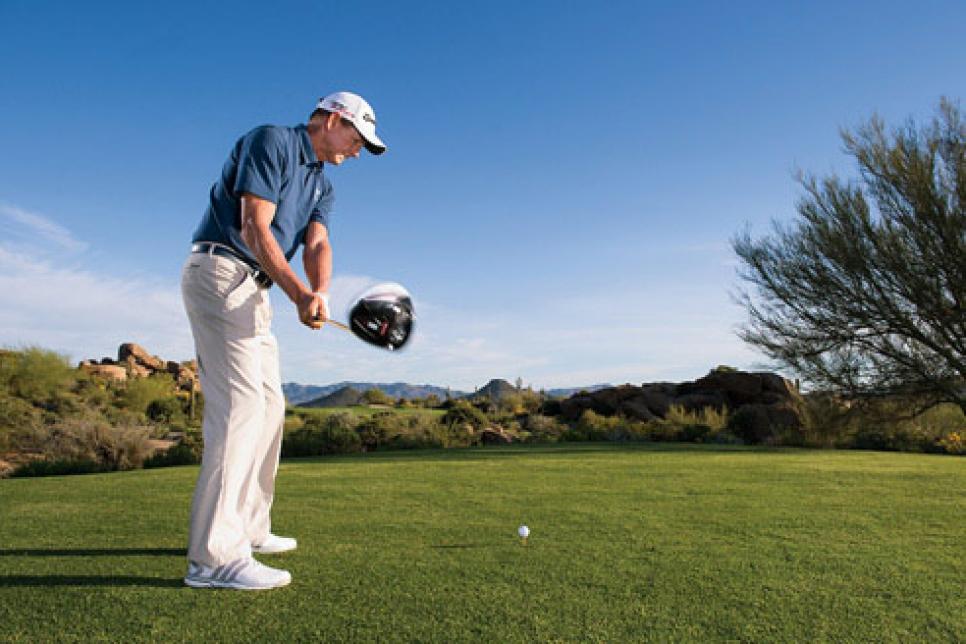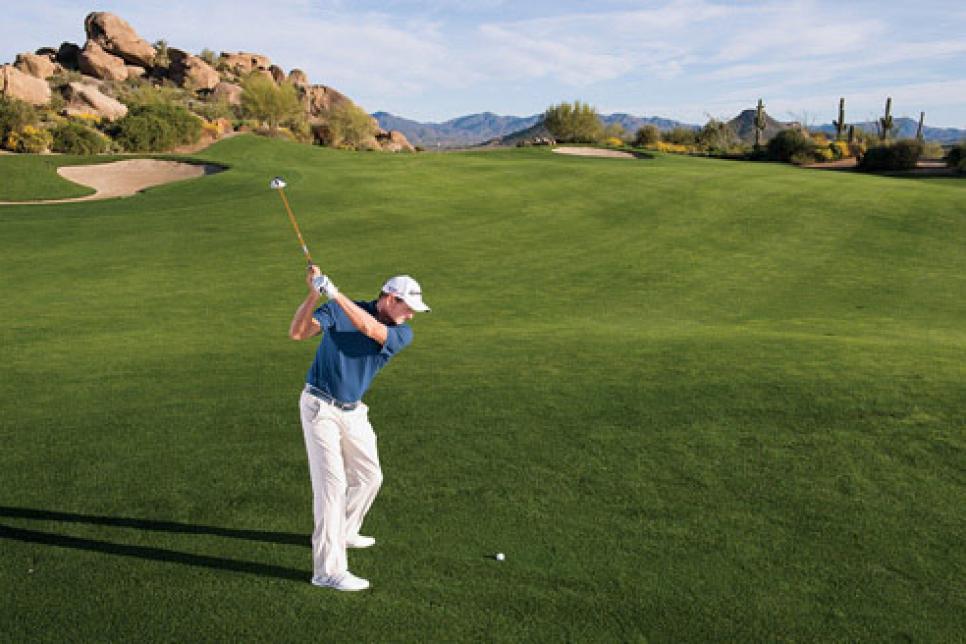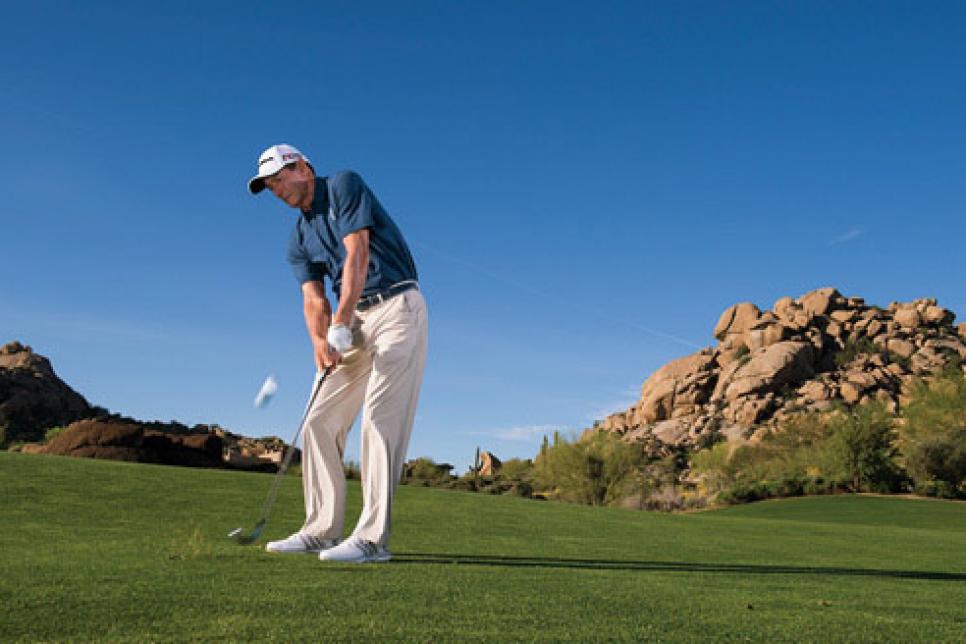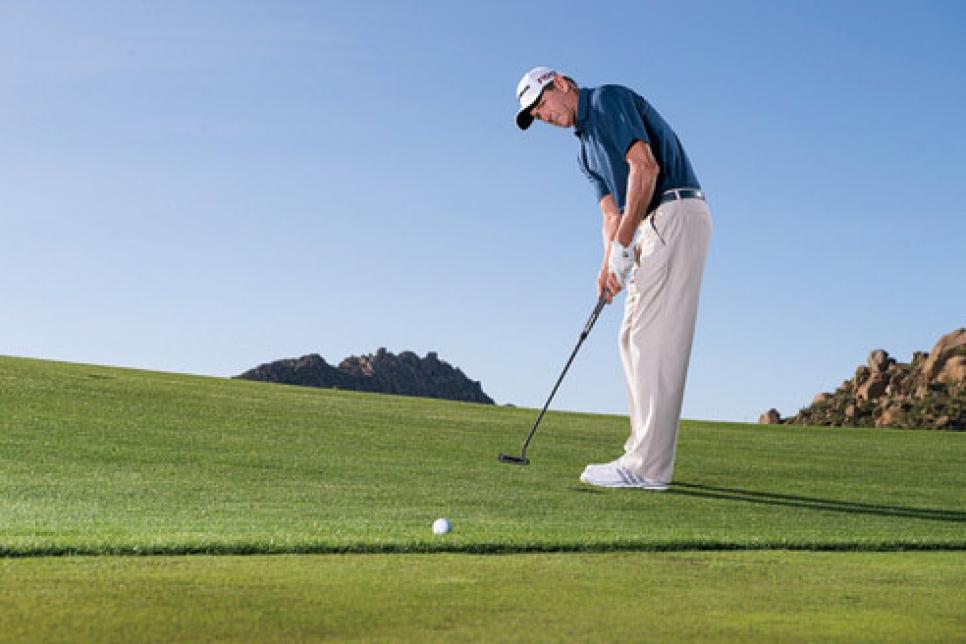Instruction
4 Obsolete Shots, and What to Play Today
Some advice has been around for so long that it has been accepted as automatic, and nobody ever questions it. But massive improvements in equipment and access to statistics for players at every level tell us that you probably need to rethink how you approach some situations on the course. Many players have had it drilled into their heads that they need to be careful, pick the lowest-risk shots and navigate the safest routes they can find. That can be true, especially when hazards and out-of-bounds are threatening, but in many other scenarios, a different approach will increase your odds of making a better score. Here is a list of four shots you don't need to hit anymore, all the way from the tee to around the green.
Below, I'll explain why they're obsolete and how you can replace them--and immediately modernize your game.

ALWAYS HIT DRIVER
A lot of average golfers don't hit the driver as consistently straight as they'd like. The reflex advice has always been to dial down to a 3-wood and put something out there in play. That's a nice thought, but the reality for most middle-handicappers is, they don't hit the 3-wood much different than the driver. If you put the same mediocre swing on a 3-wood that you do on a driver, you're just going to be 20 or 30 yards farther from where you want to go.
And it's actually harder to make solid contact with a 3-wood because the clubface is smaller and you have to tee the ball so much closer to the ground. Unless water or O.B. is a factor, swing your driver and accept the risk of a crooked shot for the potential distance benefit. Even if you hit the 3-wood as well as you can, you're still going to have a significantly longer shot into the green, which offsets most of any accuracy advantage you got.

GET AS CLOSE AS POSSIBLE
Laying up to a favorite distance is a myth that has probably come from selectively watching professional golf on television. You might see a tour player lay up on a par 5 to a preferred wedge distance, but 99 percent of the time if the pros have the opportunity to get near the green safely, they'll bomb it down there. Plus, stats don't lie. At every distance the PGA Tour measures, players hit it closer to the hole on average when they're closer to the target. I don't care how much you love having 7-iron into the green: Over the long term, you're going to shoot better scores if you try to cover as much distance as possible. It's always better to have a wedge in your hand than a longer iron. The only exceptions? When the longer shot puts you at risk of going into a hazard or deep grass, or leaves you with an awkward sidehill or downhill lie.

PLAY FOR THE CENTER OF THE GREEN
Range-finding technology is so helpful and cool. It's great to know that you need 204 yards to carry that stream off the tee, or that the flag is exactly 147 yards away. But knowing the precise yardage to your target doesn't change the fact that many players don't hit their clubs a consistent distance. You might know that your ideal 8-iron goes 140 yards, but realistically, most go shorter than that. The yardages to the center and back of the green are the ones you should use in determining club selection. Play a round where you ignore the distance to the flag on your approaches and instead play to the center of the green when the pin is in the front and a little past center when it's in the back. Your goal is to end up somewhere in the fat part of the green and leave yourself a good chance to two-putt. When you shoot for the middle, you'll hit more greens and avoid missing where even a tour player would struggle to get up and down.

PUTT WHENEVER YOU CAN
Want to immediately improve your short game, with virtually no practice? Quit chipping and pitching from manicured fairway grass around the greens.
For the vast majority of weekend players, choosing to putt from those positions will produce a much better average result than hitting any kind of bump-and-run or lofted wedge shot.
Superintendents are actually making this an easier decision than ever because of how tight they're cutting the grass around the greens. Make it a simple rule: If the conditions will let you--a clear path through short grass to the target--use your putter. You already know how to putt, but it's worth practicing some of these shots before your round to get a sense for distance. Drop a few balls at different spots on the fringe of the practice green and try to gauge the speed you need to clear the first cut. Your worst putt will be better than your worst chip. That's never been truer than it is today.